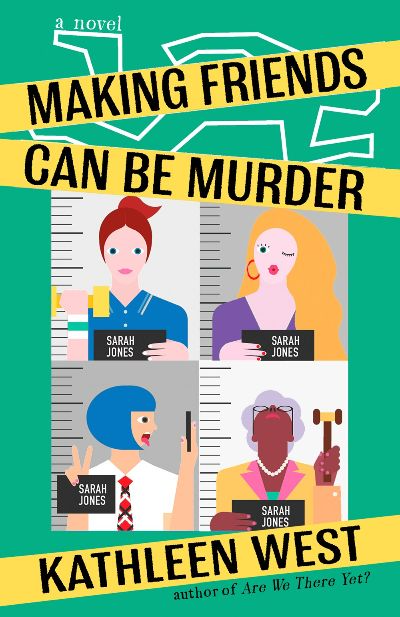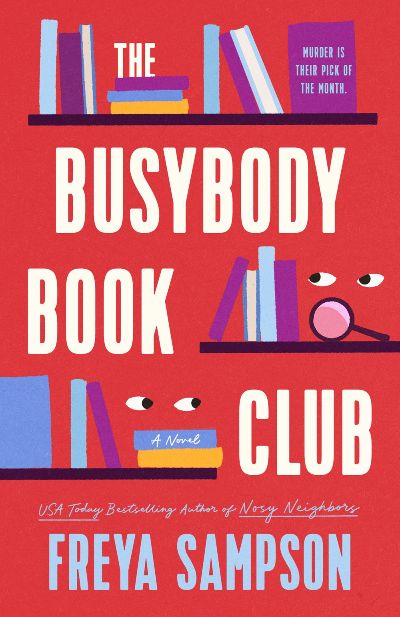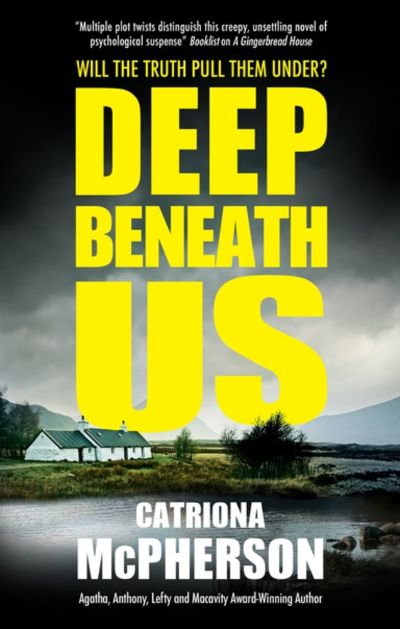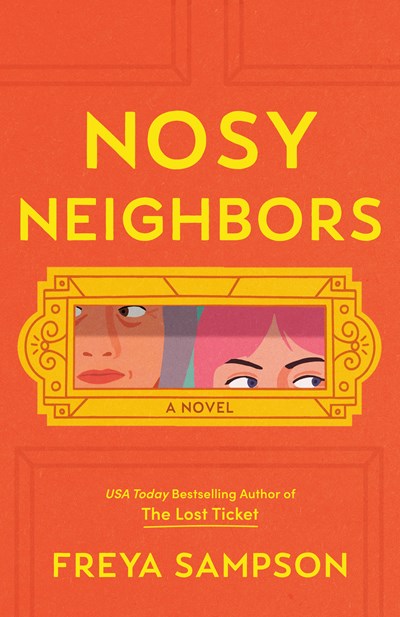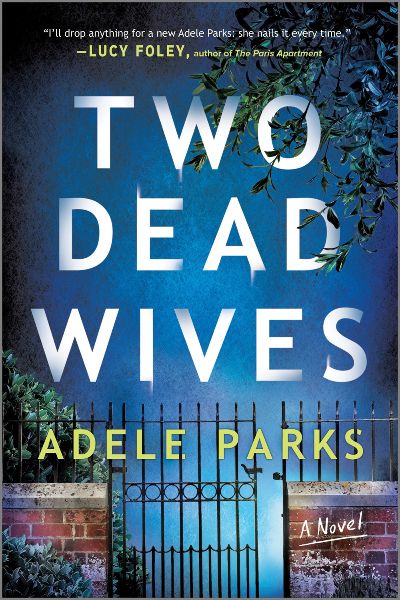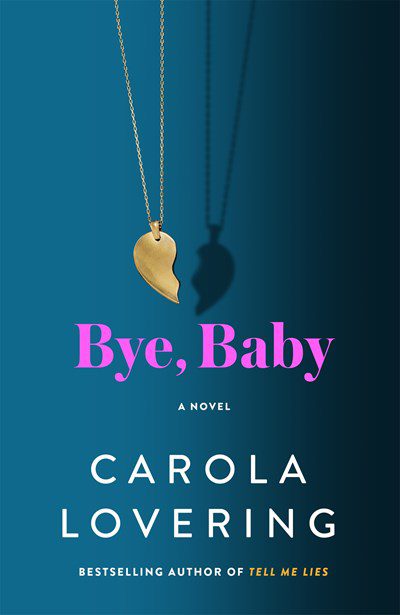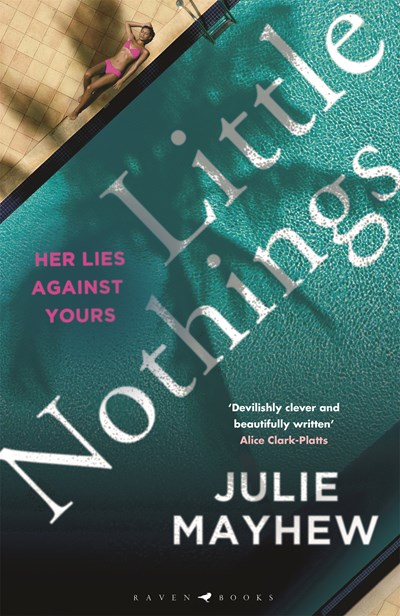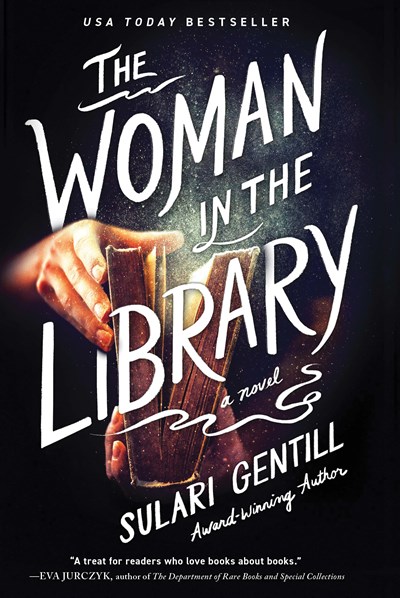We start this complicated plot with a clever ongoing fraud scheme in which a woman assumes the same name as another with a common name and a trust fund in order to steal the money. In Minneapolis, Sarah Jones has become part of a project of a Catholic highschooler doing penance for bad behavior, bringing together a bunch of women with this same name for regular coffee and conversation, making it ripe for this fraud. To avoid confusion, each member is identified by age rather than name. Thirty is our heroine; twenty-seven the thief. Added into the mix is a freshly minted FBI agent with his own secret agenda (not nefarious) and a cloistered nun with an unexpected background. A Sarah Jones, not part of the group, is found murdered, taking the fraud investigation to a new level. We have time spent in the woods, old crimes to solve, family connections, and a spot of romance. Confused? Don’t be. The story maintains its integrity and is enjoyable to the end with an interesting set of characters poised for what could be another book in the future.
Friendship
Nova Davies has relocated from London to a remote Cornish seaside town, in part to be with her fiancé, whom she is set to marry in a little more than a week. While Nova loves her job as a social worker in the local community center, she can’t help but be a bit frustrated by her clients. Must the five members of her book group—a real bunch of misfits if there ever was one—argue about everything? But that’s just the beginning of a series of misfortunes, all of which seem to point to Nova. First one of their own, a book group participant, disappears, only to have a dead body show up in his house. Then a significant sum of money, earmarked to repair the community center’s ancient roof, goes missing—could Nova really have been so dizzy that she forgot to lock up the building? There’s a lot of fun to be had here, from Phyllis, an Agatha Christie superfan who insists on using Christie’s plots to solve the murder and find the funds, to Nora, whose life couldn’t become more complicated thanks to a full-on control freak of a mother-in-law and a mom who’s stranded in South America, likely to miss her wedding. And the fiancé? Please dump him. A delight from start to finish, and sure to please cozy readers who appreciate strong characters, a great community setting, and a dollop of criminal activity. For readers who enjoy Lucy Gilmore and Emily Henry.
Tabitha is compelled by the spiteful actions of her ex-husband to move back to her childhood home. This is not a cozy, safe space as one might hope. It is a sort of compound: two schoolhouses on different sides of a reservoir, one occupied by her family, the other by her uncle’s family. In the past, four cousins, Tabitha the youngest, ran and played like a pack. But her mother is an unstable artist, her father and uncle killed themselves, and her sister and cousin married each other at age 16. Now, cousin Davey purportedly dies by suicide as well, leaving his property to Tabitha. But is that what really happened? Davey’s two cronies, along with three smart teens, use skills learned from TV crime dramas and DNA analysis to get to the bottom of it all. The characters are captivating, the atmosphere is dark and dour, and the wretched weather contributes to the overall tone of the book. The novel is set in Scotland and the use of Scottish dialect and expressions is sometimes daunting, but never gets in the way of the telling. To say that the plot here is a tangled mess may be an understatement, but the untangling is a treat.
Friends Lauren, Kelsey, and May call themselves the Canceled Crew. Each has been vilified in the media, Lauren, who’s Black, because it’s assumed that she slept her way to her job as director of the Houston Symphony; May, who’s Chinese American, for a terrible incident on a subway platform that was filmed and went viral; and Kelsey, who’s white and rich, for being suspected of killing her husband. The women are now on a girl’s weekend in the Hamptons, trying to put it all behind them and let their hair down a bit, but the note of the book’s title throws them back into chaos. It’s a prank that isn’t so funny after the recipient goes missing and the three women are firmly back in the spotlight, a situation that widens every crack in their relationship with one another and their partners and families. Burke makes every character hyper real here, portraying the effects of privilege, thoughtlessness, and poor decisions with deft precision. The strong ties we feel to old friends, no matter current circumstances, are also shown in sharp relief. Add to this a page-turning whodunit element and it all adds up to a cracking read.
A tale both churlish and charming, in which Shelley House, a grand but dilapidated old mansion, is scheduled for demolition, forcing the residents to put aside their antagonism and fight the common enemy: the construction developer. Twenty-five year old Kat, of pink hair and punkish demeanor, has just rented a room in Shelley House and found a job as a dishwasher, convinced she’ll stay for just a couple of weeks. Why is she in town? It’s hard to say, except she partially grew up here with her loving grandfather, away from her substance-abusing mother, and something is drawing her back. Across the floor lives seventy-seven-year-old Dorothy Darling, a retired teacher who spends her days like Dickens’s Madame Defarge, recording the goings on of her neighbors. Both Kat and Dorothy are propelled by powerful secrets that stretch back years, and that only now—thanks to the corrupt cops and a vicious construction developer—they must expose to the light of day. With poignant characters and a richly drawn community, this is a novel readers will not soon forget.
This sequel to Woman Last Seen (2022) publishes the day after Christmas, but it’s far from your traditional holiday read. It does, however, provide more than ample entertainment for days off and/or fuel for thinking away interminable events. The main thought provoker is: how does a woman manage to be married with kids in one family while also married to someone else? How are the two husbands and the kids supposed to feel now that Kylie, also known as Kai and Leigh, the bigamist whom they thought they hated, has gone missing? And what’s the second husband to do, accused as he is of Leigh’s murder, when he knows he didn’t do it and nobody even knows if she’s actually dead? Leave this one up to the kids, who are sick of the media firestorm around them, not to mention tired of their mother’s best friend who has moved in just a little too quickly and whom they know visits Dad’s room at night. Philosophical questions quickly give way to a thrilling investigation and final pages that will keep readers on edge and rooting for justice.
New Yorker Billie has never wanted children. But the series of hurts chronicled over the course of this frenemies story find her standing in the apartment below her former best friend, Cassie’s, place, holding Cassie’s baby while her friend upstairs wails that there’s been a kidnapping. Most of this absorbing tale takes place in the present, when lonely Billie tries over and over to regain the closeness she had with Cassie when they were teens. But Cassie, who’s now a famous Instagram mommy, wants little to do with her. We also flash back to those teen years, when a incident involving Billie’s stepfather, whose sexual abuse of the girl is graphically described, has been kept a secret by Billie and Cassie, leaving them emotionally tied but perhaps also causing their estrangement. As in her Can’t Look Away (2022), Lovering nails the bizarreness of obsessive love—Billie’s for Cassie and Cassie’s for Internet fame—and its twisted outcomes. This book will be a hit with fans of that previous work as well as of Ian McEwan’s Enduring Love.
Liv, a bored stay-at-home mother, is leading a double life. She’s been friendless for years, so when she meets other women at an overly earnest children’s music class who also think the event is ridiculous, she’s all in. Liv and her husband, Pete, are parents to a little girl, but soon Liv spends most of her spare time with Beth and Binnie, and then with a new addition to the group, Ange. The friends’ partners and children often take part too but are very much beside the point to the women, who seem almost to be reliving their teen years. The suffocating peer-pressured friendship is made worse when Ange joins, as she’s fond of backstabbing comments that are posed as jokes, and Liv walks on eggshells, fearing she’ll be rejected from her only friendship. Soon Liv and Pete, who are struggling financially, get into massive debt keeping up with expensive dinners and designer outfits that their friends insist they deserve. The pinnacle is a three-week trip to Corfu that is set up at first as a locked-room mystery, but then another person enters the drama, leading to a tantrum-and-booze loaded tragedy. This feels like a movie that you watch from between your fingers as everything goes dreadfully wrong, fast. Try if you enjoy girls’ trip stories.
Rose (The Perfect Marriage) brings to life the rich, overly botoxed women of Buckhead, GA. Mainly showpieces for their uber-wealthy husbands, they spend their passive-aggressive days at Glow, a membership-only beauty salon where the women commit to several treatments per week. Jenny, Glow’s owner, is stuck being nice to Olivia, the queen bitch of Buckhead, who has mastered the “kinsult,” or kind insult (“your skin is glowing…I can barely notice the lack of elasticity today”). Olivia’s abused minions include Shannon, the saddest woman in the book, whose politician ex-husband, Bryce, left her for a younger woman. The “girls,” and perhaps readers, want to hate Crystal, “Bryce’s midlife crisis,” but Rose doesn’t take the easy way out, creating in Crystal a more layered character than at first expected. Then there’s Karen, a luxury-real-estate lawyer who keeps the book and the “friends” as grounded as they can be. Chapters narrated by each of the women alternate with ones in which Jenny is being questioned by police about what exactly happened at Bryce and Crystal’s housewarming, an opulent event that featured a murder. Rose’s writing is pitch perfect when it comes to both keeping readers gripped and making them want to tear Olivia’s (beautifully done) hair out. If you enjoyed Clueless and other mean girls movies and books, this is for you.
Four strangers—two men, two women, all twenty-somethings—are sharing a table in the grand reading room of the Boston Public Library when a woman screams. They have no idea who she is, where she is, or why she screamed, but it does break down the barriers among the four, and by the time they leave the library, they are fast becoming friends. The crew includes a novelist; a law student; a psychology grad student; and our protagonist, Winifred, known as Freddie, a novelist who hails from Australia. It turns out a woman was murdered in the library, and the fab four take it upon themselves to investigate. But when one of the four is attacked, they begin to realize that there may be a connection between them and the murdered woman. And that one of them may be the murderer. Meanwhile, each chapter ends with correspondence to the author of The Woman in the Library, who lives in Australia, from a Boston-based friend who’s helping her with language and locale—until his communiques take a sinister turn. Readers who enjoy a playfulness in their fiction will be delighted by this book-within-a-book. For fans of Anthony Horowitz.
- 1
- 2

